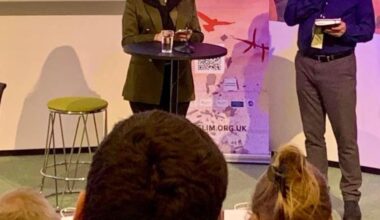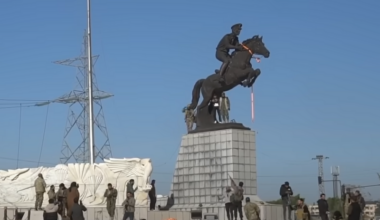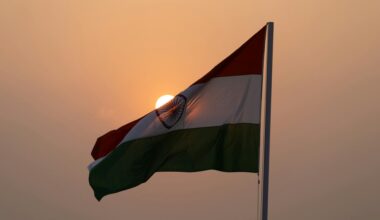

The civil war in Sudan broke out in April 2023 between the Sudanese Armed Forces (SAF), led by General Abdel Fattah al-Burhan, and the Rapid Support Forces (RSF), led by Mohamed Hamdan Dagalo, commonly referred to as Hemedti. These two men jointly supported the popular revolution against dictator Omar al-Bashir in 2019, and likewise partnered in 2021 to remove the transitional civilian government that took al-Bashir’s place. This partnership, however, was simply a marriage of convenience, and in the spring of 2023, the underlying tensions between the two factions erupted into full-scale war.
These tensions can be explained as a struggle over power, land and resources. The two warring sides are military factions that were part of the old regime. The SAF are the official armed forces of the state of Sudan, while the RSF were founded as a militia by al-Bashir two decades ago. With the dictator gone, and having sidelined the civilian population, these two factions went to war to gain control of the country.
Little in the way of ideology, racial or religious, has been driving the conflict. As Sudanese doctor and activist Moe Ali told me, the conflict is ‘not divided into Sudanese Arabs and Sudanese blacks. The SAF and RSF are killing anyone who gets in their way…In Sudan there are no clear cut-off lines between Arabs, Sudanese, etc.—we’re all mixed.’ (Note that there are over 500 ethnic groups in the country.) This is not to disregard the ethnic dimensions of the conflict, which certainly exist—see, for example, the RSF massacres of the Masalit people in the west of the country. It is simply to argue that ethnicity is not a primary driver of the central conflict between the organised military forces of the SAF and the RSF. In any case, given the scale of violence unleashed on the civilian population, regardless of the outcome of the war, the dream of democracy ignited by the popular revolution in 2019 is dead for now. Neither side believes in democracy, as evidenced by their joint overthrow of the transitional civilian government in 2021.
[I]t is worth remembering [the] original name [of the RSF]: the Janjaweed. The name literally translates to ‘devils on horseback’, a description the people of Darfur, who faced genocide at their hands in 2003, would certainly agree with.
Thus far, the civil war in Sudan has produced the largest internally displaced population in the world. The United Nations estimated in January this year that over 10 million people had been displaced by the conflict (9 million internally). 12,000 people have been reported dead since April 2023, though this is likely a vast underestimate. According to a United Nations report seen by Reuters, 15,000 people were killed in one city in Darfur alone, in a re-enactment of the ethnic violence of the early 2000s. The culprits behind this are the now-rebranded RSF, but it is worth remembering their original name: the Janjaweed. The name literally translates as ‘devils on horseback’ – a description with which the people of Darfur, who faced genocide at their hands in 2003, would certainly agree.
Another reason to doubt the figures is the widespread practice of unofficial burials. Dallia Abdelmoniem, a Sudanese political commentator, spoke to me of ‘family and friends who have had to bury relatives in their gardens’. Health services have inevitably been hollowed out because of the war, in part because ‘the RSF has occupied a number of hospitals and used them for military purposes. Some hospitals have been shelled while others have been looted,’ as Sudanese writer and researcher Nada Wanni observed to me. Electricity blackouts have also meant ‘dialysis patients and many others have died in Khartoum and other states’. Wanni speaks of the ‘collapse of the medical sector’. This picture is corroborated by a Sudanese humanitarian worker to whom I spoke, who wishes to remain anonymous. This person told me of the extremely limited number of hospitals now in operation: for example, in the city of Omdurman, which has a population of over 2 million, only Al-Nau Hospital is still functioning.
In place of the government, so-called ‘resistance committees’ have taken up the responsibilities previously entrusted to the state. The committees first emerged during the 2019 revolution as grassroots organisations involved in rallying support for the peaceful protests against the regime of al-Bashir. Since the war began, they have been providing food and medical care to the needy, as well as safe passage for those seeking to flee Sudan. Despite this, the situation throughout the country is dire. The World Food Programme reports that ‘nearly 18 million’ are suffering from acute food insecurity across the country, with ‘nearly 5 million [facing] emergency levels of hunger.’ As defined by the United States Agency for International Development, the emergency level is phase 4 along the spectrum of food insecurity. Phase 5 is ‘catastrophe’.

In substituting for the state, the resistance committees have revealed the government’s inability to meet its most basic responsibilities. The rhetoric and actions of the government reflect a recognition of this reality. For instance, the governor of Sudan’s El Gezira state ordered ‘the detention of all members of the fifth column cooperating with the RSF militiamen, and which consists of displaced originally from Darfur and Kordofan, who entered El Gezira recently, members of the forces of the Freedom and Change Declaration, and of the resistance committees’. The Freedom and Change Declaration was drafted by the pro-democratic and anti-war coalition the Forces of Freedom and Change (FFC). For the SAF, the smearing of the FFC and resistance committees is a necessary part of their repression.
From the outset of the war, both the RSF and SAF have received foreign help. The United Arab Emirates (UAE) has been supporting the RSF directly in its war effort by sending arms shipments via Chad into Darfur. Hemedti’s family’s ownership of the Jebel Amir gold mines ensures that the UAE, as the primary recipient of this gold, continues to support the RSF. Meanwhile, Egypt supports the SAF, and so the civil war has become a war of proxies, with foreign governments competing for regional influence and natural resources. The significance of this is worth emphasising, given the limited capability of either the SAF or the RSF to wage a war on their own. Shayna Lewis, a Sudan specialist, went so far as to tell me that ‘if you removed the UAE from the conflict, there is a widespread feeling that the war would end.’
We are witnessing the death of a once-promising democratic revolution.
The prospects for peace are bleak, with no evidence to suggest that either side seeks a cessation of hostilities. The Economist’s striking November 2023 headline, ‘A genocidal militia is winning the war in Sudan’, continues to hold true in many respects. Meanwhile, Lewis told me, there are reports of a ‘great mobilisation in Eastern Sudan, with the SAF going on the counteroffensive and taking the fight to the RSF.’ This, she argues, will be devastating for the civilian population, as the SAF takes the war from east to west in an effort to regain lost territory. No doubt the SAF’s military planners have in mind the loss of confidence in them from the civilian population, a feeling produced by the incompetence and weakness of the army in the face of the RSF. The renewed ethnic killings in Darfur were a cruel reminder of this: despite the army possessing military bases in Darfur, Lewis argues that they ‘essentially abandoned the civilian population’.
What we are left with is a seemingly interminable and intractable conflict, one riven with the memories of a previous genocide. We are witnessing the death of a once-promising democratic revolution. Meanwhile, an indifferent world, which sees it as just another war in a benighted continent, watches on.








Your email address will not be published. Comments are subject to our Community Guidelines. Required fields are marked *
Donate